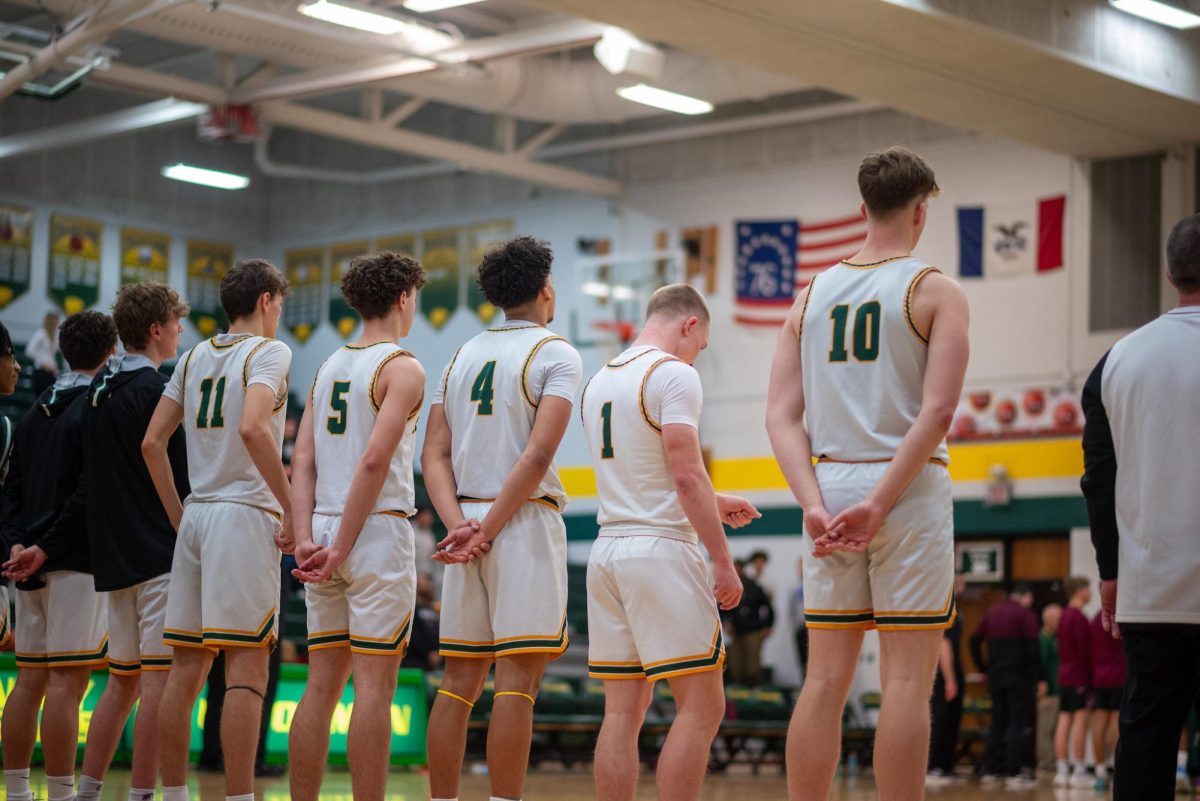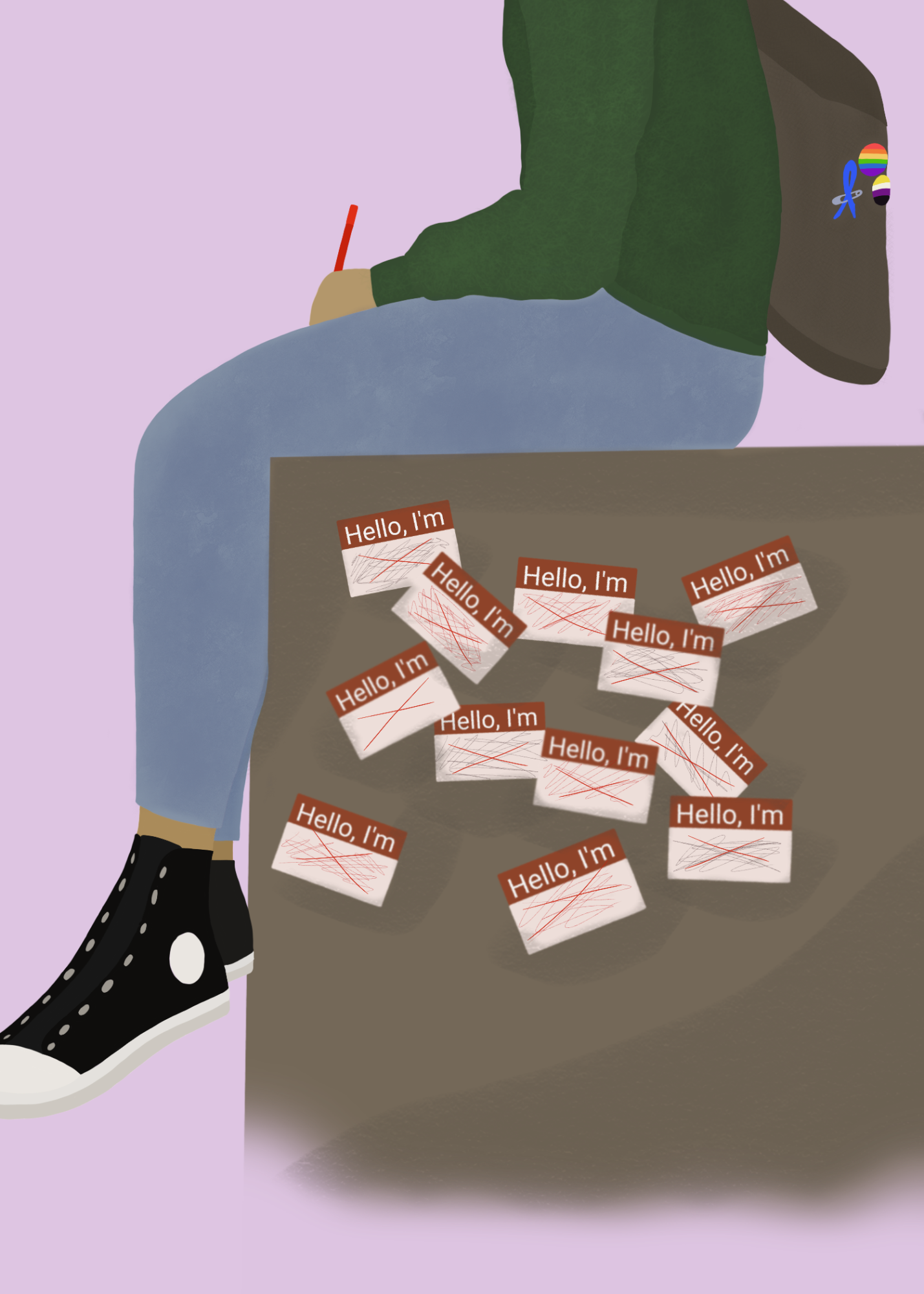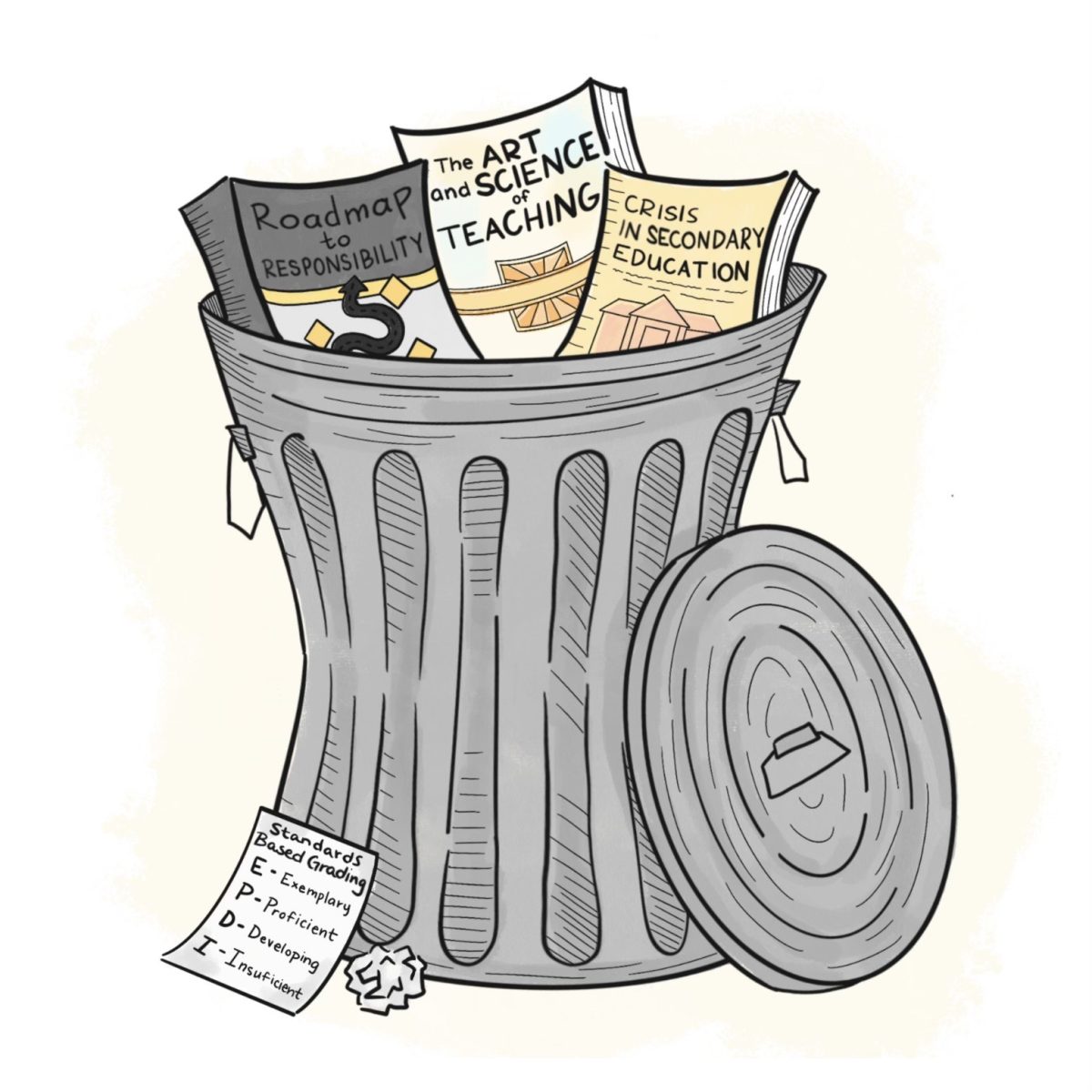“Keara?”
Silence met the name, halting the flow of roll call.
“Is Keara here?”
Still, nothing.
“Keara Black?”
To this, a hand snapped up and a quick “here” followed. The substitute nodded, marking the student as ‘present’ on her attendance sheet and continued to call out names. The rest of the class did not move on so easily, shooting curious looks at a girl they knew only as Nicole—the girl who had responded to Keara.
Names hold meaning. They refer to our identities as a whole, every aspect of our personalities, lives and experiences encapsulated in a single word. Your name follows you like a shadow, attached to you even if you don’t always notice.
While our name is a part of us, people can find that a name holds discomfort or hurt which causes them to disassociate from that aspect of their identity. When your name doesn’t feel like it’s yours then the next logical conclusion is to find one that does.
There’s a rule in journalism. Once you introduce a person to your audience, you are to refer to them only by their last name. Today I am breaking that rule. Our names are who we are and it is crucial that we are respected and recognized as the people that we have grown into and not the letters written on a piece of paper in the first moments of our lives.
On May 26, 2023, Iowa Governor Kim Reynolds Senate File 496—formerly known as House File 180—into law. The legislature covers how Iowa schools are required to handle students’ gender identity and bans hiding and/or omitting information from parents regarding a student’s gender transition or name change.
Iowa schools are now required to report a request for any “accommodation that is intended to affirm a student’s gender identity” to the student’s parent or guardian.
This portion of the bill does not specify what “accommodation that is intended to affirm a student’s gender identity” is exactly and the ambiguous language disallows the use of not only preferred names by transgender students but also nicknames and preferred names for cisgender students, students who identify with their birth gender. A different or shortened version of one’s name could be seen as more androgynous and is therefore illegal for teachers to use without written permission from the student’s parents.
“I’m lucky someone who’s lucky enough to have my preferred name and pronouns inputted on Infinite Campus—the attendance website,” Kennedy senior and transgender man Caelen Cummins said. “However, I know that hundreds of other trans kids don’t have that luxury and how hurtful it has to be to be recognized by a name that’s not yours.”
Gender identity is complicated and when your body feels wrong, a name that isn’t yours only makes it worse. It’s such a large part of everyday life that, according to a study in the Journal of Adolescent Health, 71% of individuals experienced a decline in symptoms of severe depression when transgendered youth are addressed by their preferred name.
“My name is me,” Caelan said. “And I felt like a weight had been lifted off my soldiers when I first came out with my preferred name. All the desire to be myself that had built up felt good to finally talk about. I had the chance to not feel disgusting in my own skin every time someone called me by my name.”
The law doesn’t only affect transgender students. It applies to all nicknames and the repercussions for using a student’s preferred name are so severe that teachers are unwilling to risk the consequences.
“I was adopted so my first name was given to me by my birth mother and my middle name was changed by my mom. My name is Nicole. It’s on my birth certificate, it’s just in the wrong place,” senior Nicole Black said.
She goes by her middle name with everyone, including her teachers.
“I’m lucky that my preferred name is already in Infinite Campus. Even with that I have to constantly correct teachers, especially substitutes who get the printed attendance sheets,” Nicole said.
Nicole’s name is personal and while she is cisgender, teachers are so afraid of the consequences of failing to abide by the law that it was also applied to Nicole. The use of her middle name had to be changed if she wanted to be addressed correctly.
“I came from a family that wasn’t in the best situation,” Nicole said. “My mom has boxes on boxes of case records detailing how I was treated. I know my background and I know where I came from and it’s a symbolic thing, like I’m putting all of that behind me.”
We find that some experiences are better left in the past—and to move on from difficult moments we need to make changes, become different people. Some dye their hair, others take up exercise and a few take on a new name for a new identity.
“My name is who I am,” Nicole said. “It felt like a new beginning for me because Keara had so many bad memories attached to it. I feel like I’ve become a new person and I couldn’t imagine giving up being myself just because the government says I have to.”
But it’s hard to be open and honest about yourself when your teachers run the risk of being fined, fired or having their teaching license revoked for keeping a secret about your identity.
“I feel like teachers are now a threat to students,” Kathryn Woerner, a social studies teacher at Linn-Mar, said. “Our classrooms are no longer safe for kids. It makes for an awkward tension when I have to start a “get-to-know you” icebreaker with Senate File 496. Your name is the most important word you hear. I want to honor what students want to be called.”
The hypothetical situations this law covers applied to Kathryn at the beginning of the school year.
“The student who reached out to me had been a student the previous year,” Kathryn said. “I already knew their name and pronouns but they wanted me to honor that again this school year. When I went to the principal’s office, I was already in tears and hyperventilating. It was pure agony to report this student. I felt like I was choosing between the student’s trust and my career.”
While the conversation with the student’s parents went well, the long-term effects will stick with both her and her student. The law keeps students from being able to open up with their teachers without fear and has turned the school into a hostile environment rather than a safe one.
“It can change the level of safety that kids feel at school but it can also perpetuate whatever conflict might exist in the home,” Kennedy Principal Jason Kline said. “I worry about that more than anything else.”
Kim Reynolds’ and the Iowa House Education Committee’s priorities are skewed. Youth safety should be the priority to adults making decisions regarding children but Iowa lawmakers are looking to push more legislation like Senate File 496. Parent’s rights mean nothing in the face of future generations’ safety and well-being. How are children expected to find their identity and discover where they fit into the world when they’re threatened with exposure every time they try to explore themselves?
“I became a teacher because I wanted to help students navigate school while developing life skills,” Kathryn said. “I never thought I would be in a position to emotionally hurt a student. I don’t think the rapport between me and the students will ever be the same.”





























